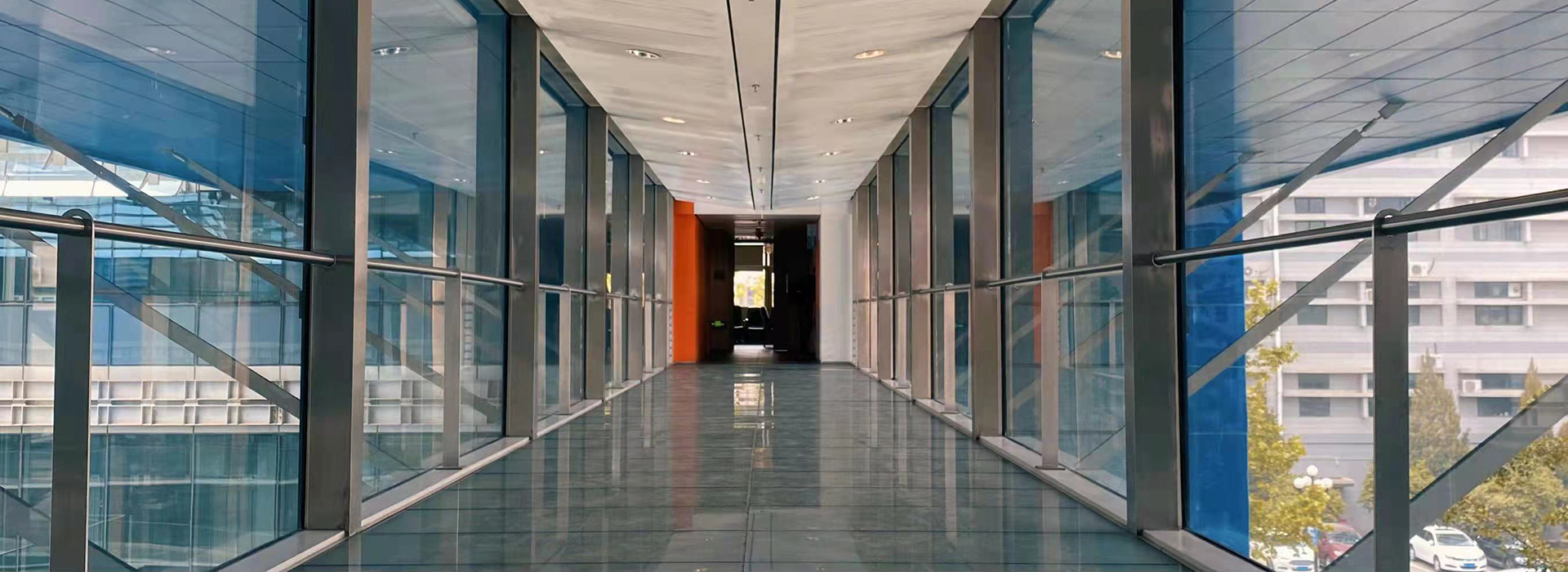The 17th Persistent Organic Pollutants Forum and and Chemical Environmental Safety Conference(POPs Forum) took place in Qingdao from May 17 to 19. This event was hosted by several prominent institutions, including the School of Environment, Tsinghua University; the Persistent Organic Pollutants Specialized Committee of the Chinese Society For Environmental Sciences (POPs Specialized Committee); the Advanced Interdisciplinary Institute of Environment and Ecology, Beijing Normal University; the State Key Joint Laboratory of Environmental Simulation and Pollution Control; the Beijing Key Laboratory of Emerging Organic Contaminants Control; and the Beijing Laboratory of Environmental Frontier Technologies. The event was organized by the POPs Research Centre of Tsinghua University; the Research Institute for Environmental Innovation (Suzhou) Tsinghua; the College of Safety and Environmental Engineering, Shandong University of Science and Technology; and the School of Environmental and Municipal Engineering, Qingdao University of Technology.
Under the theme of "Emerging Contaminants Control & Environmental Health," the conference dedicated itself to establishing a high-level communication platform for academia, management, and industry within the realm of Persistent Organic Pollutants (POPs). Over 900 representatives from domestic and international universities, scientific research institutes, governmental management departments, and industrial enterprises actively participated in the conference.
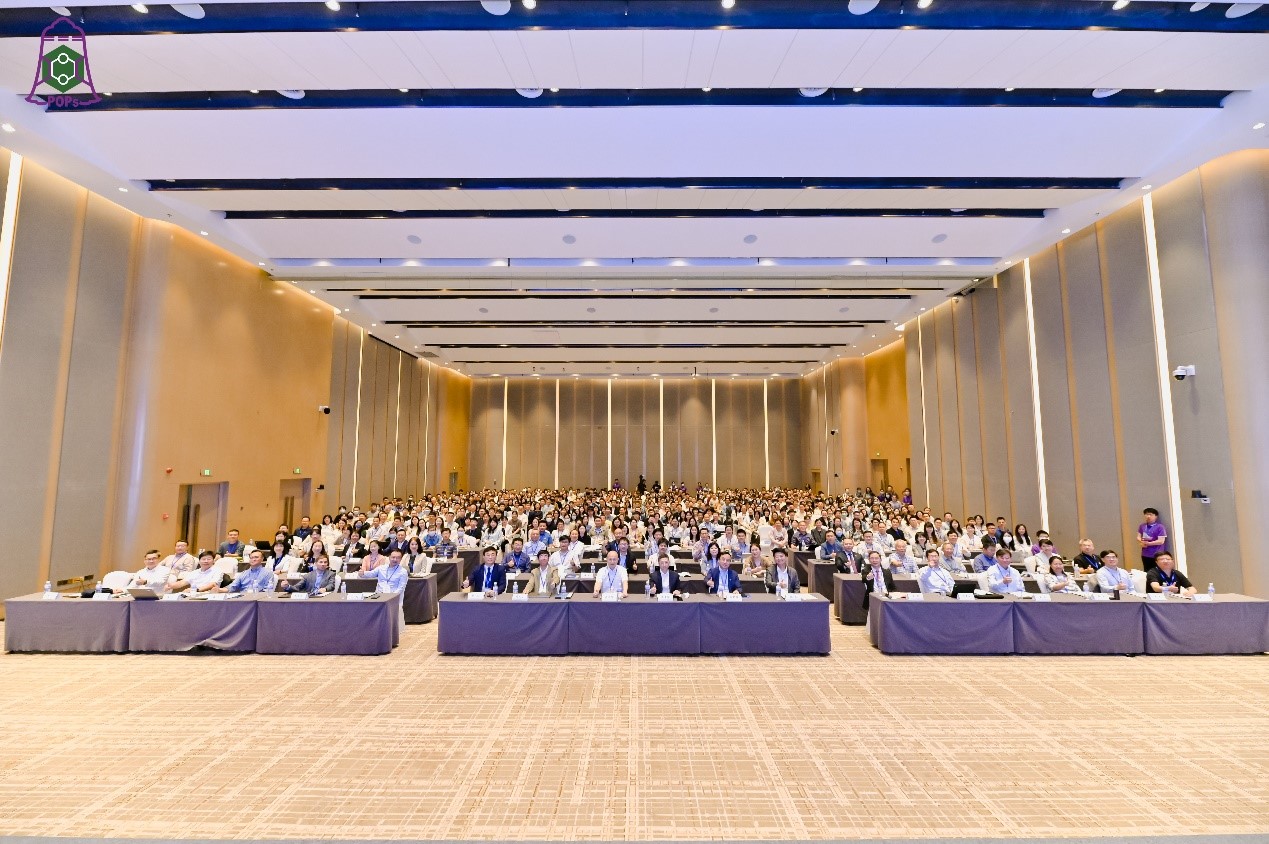
The scene of the opening ceremony
The opening ceremony of the conference was presided over by Yu Gang, Director of the POPs Specialized Committee and Director of Advanced Interdisciplinary Institute of Environment and Ecology, Beijing Normal University.
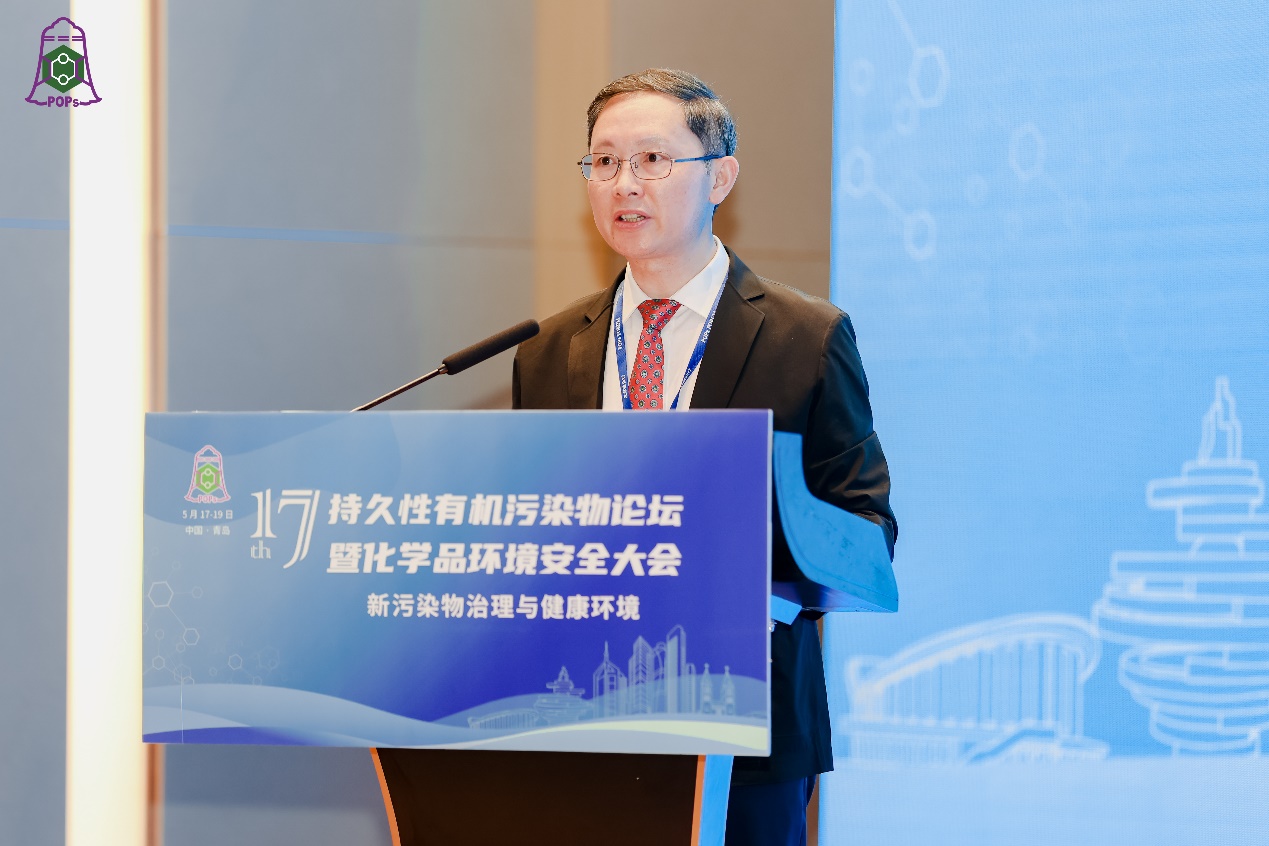
Yu Gang presided over the opening ceremony
Xiao Xuezhi, Chief Scientist of the Foreign Environmental Cooperation Center, Ministry of Ecology and Environment; Hou Xuesong, Deputy Secretary General of the Chinese Society for Environmental Sciences; Zhang Jian, Vice President of Shandong University of Science and Technology; and Zhang Kai, Vice President of Qingdao University of Technology, delivered speeches and wished the conference a great success.
Xiao Xuezhi conducted a comprehensive review of China's implementation of the Stockholm Convention over the past two decades since its initiation. He lauded China for its role as a major country and emphasized its dedication to implementing the Stockholm Convention and the notable fact that China had prioritized the phased elimination or prohibition of key control pollutants, resulting in a significant reduction in production emissions. Xiao acknowledged the commendable progress achieved so far, but underscored that China still confronted substantial challenges in phasing out and controlling new Persistent Organic Pollutants (POPs). Xiao recognized the coexistence of opportunities and challenges on this front. He highlighted China's strong emphasis on regulating emerging contaminants, with a particular emphasis on the critical importance of controlling POPs. Driven by the overarching concept of a “community with a shared future for mankind”, Xiao proposed that the governance of emerging contaminants should serve as a pivotal starting point to actively drive the implementation process for POPs. Furthermore, he envisioned China contributing its unique insights to the achievement of the United Nations' 2030 Sustainable Development Goals.
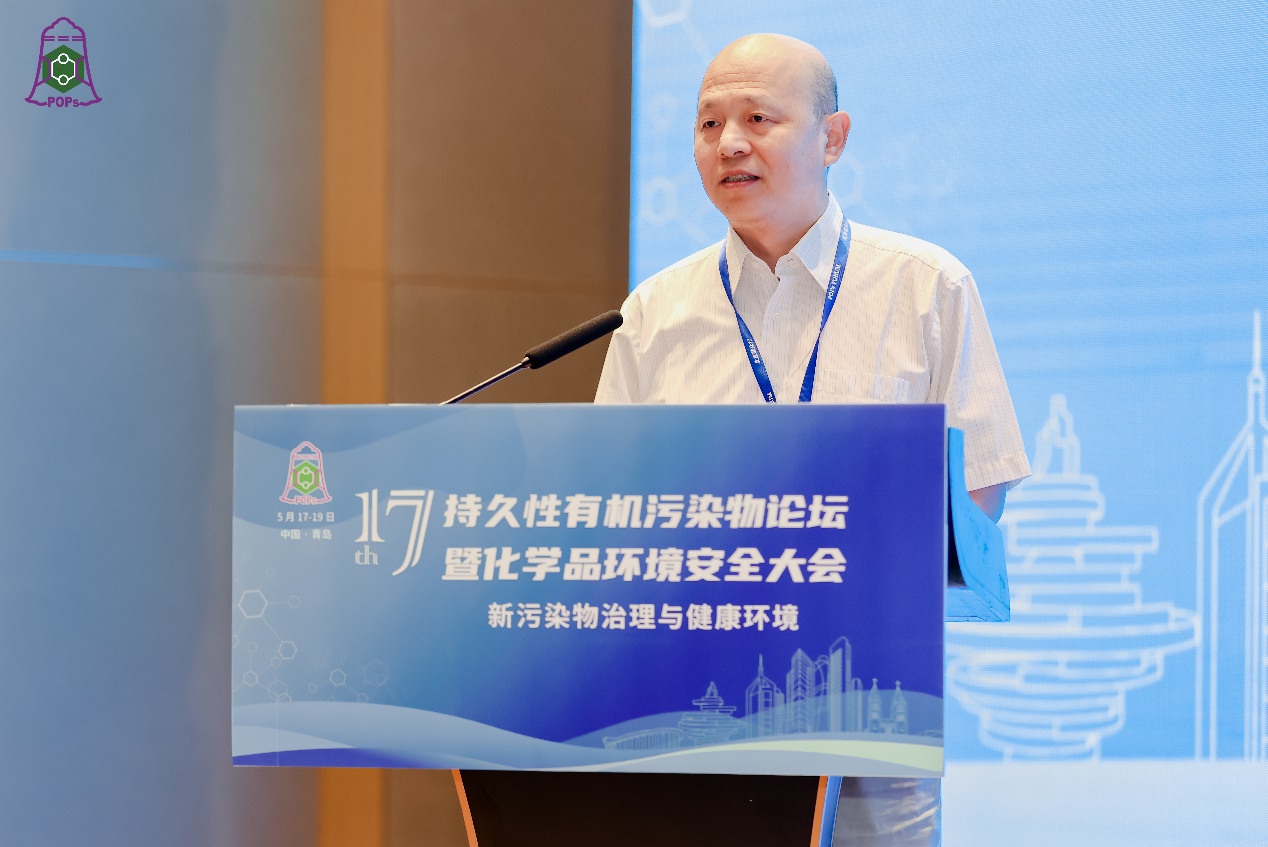
Speech by Xiao Xuezhi
Hou Xuesong highlighted the global attention garnered by the POPs Convention implementation as a crucial environmental issue. Over the years, collaborative efforts across diverse sectors have significantly contributed to mitigating the environmental impact of POPs. The POPs Forum, established alongside the specialized committee, has played a pivotal role in supporting information and technology, providing policy recommendations, fostering academic innovation, promoting industrial development, and cultivating talent and think tanks. It has been successfully established and continually enhanced as a high-level platform for exchange among government, industry, academia, and research in the POPs field. Hou Xuesong expressed confidence in the progress of emerging contaminants control and POPs Convention implementation and cited the encouragement from academic exchanges. He urged sustained contributions of key scientific and technological expertise aligned with national priorities.
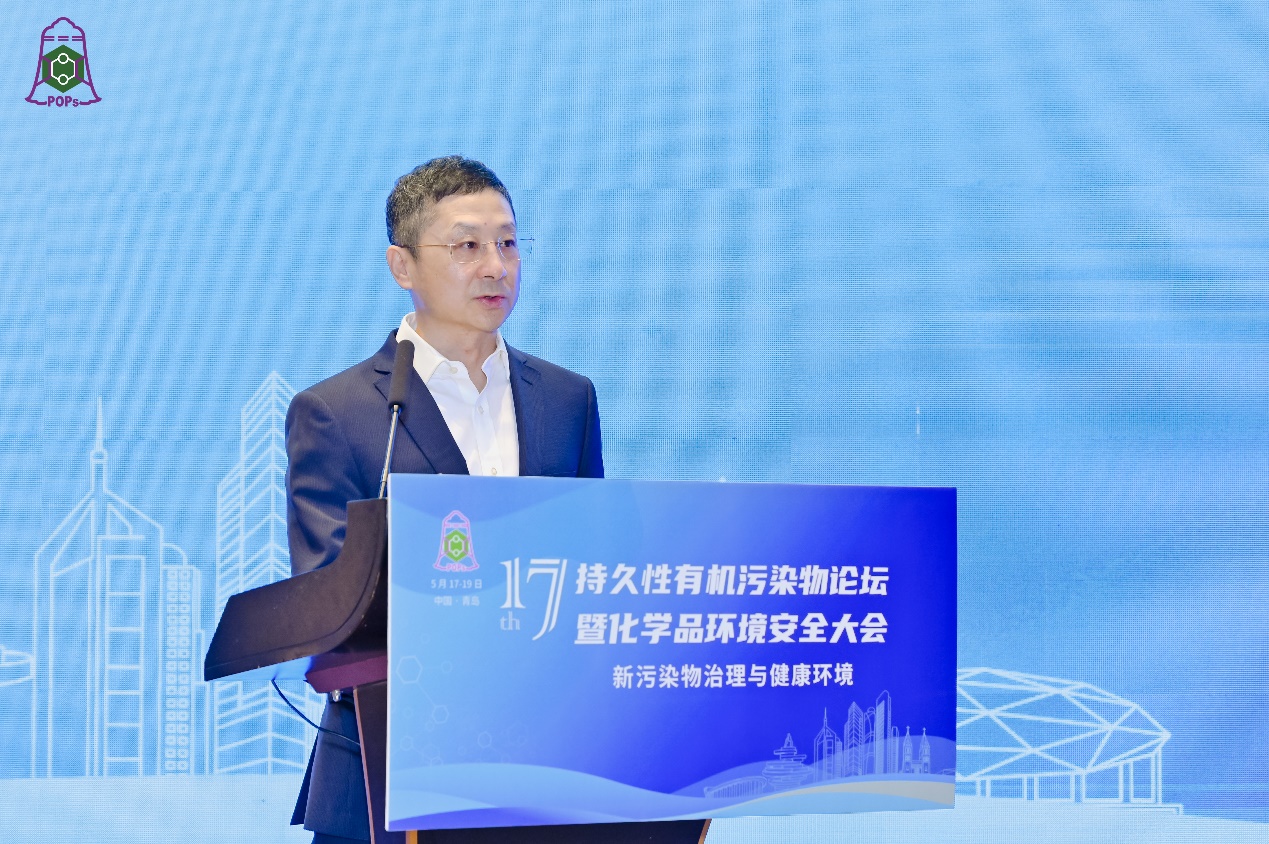
Speech by Hou Xuesong
Zhang Jian emphasized the conference's focus on critical environmental issues related to emerging contaminants in his address. He expressed the intention to leverage the presence of high-level experts and scholars to inspire innovative thinking and elevate research standards. Zhang Jian underscored the importance of aligning these efforts with national requirements for the effective control of emerging contaminants and implementation with POPs Convention.
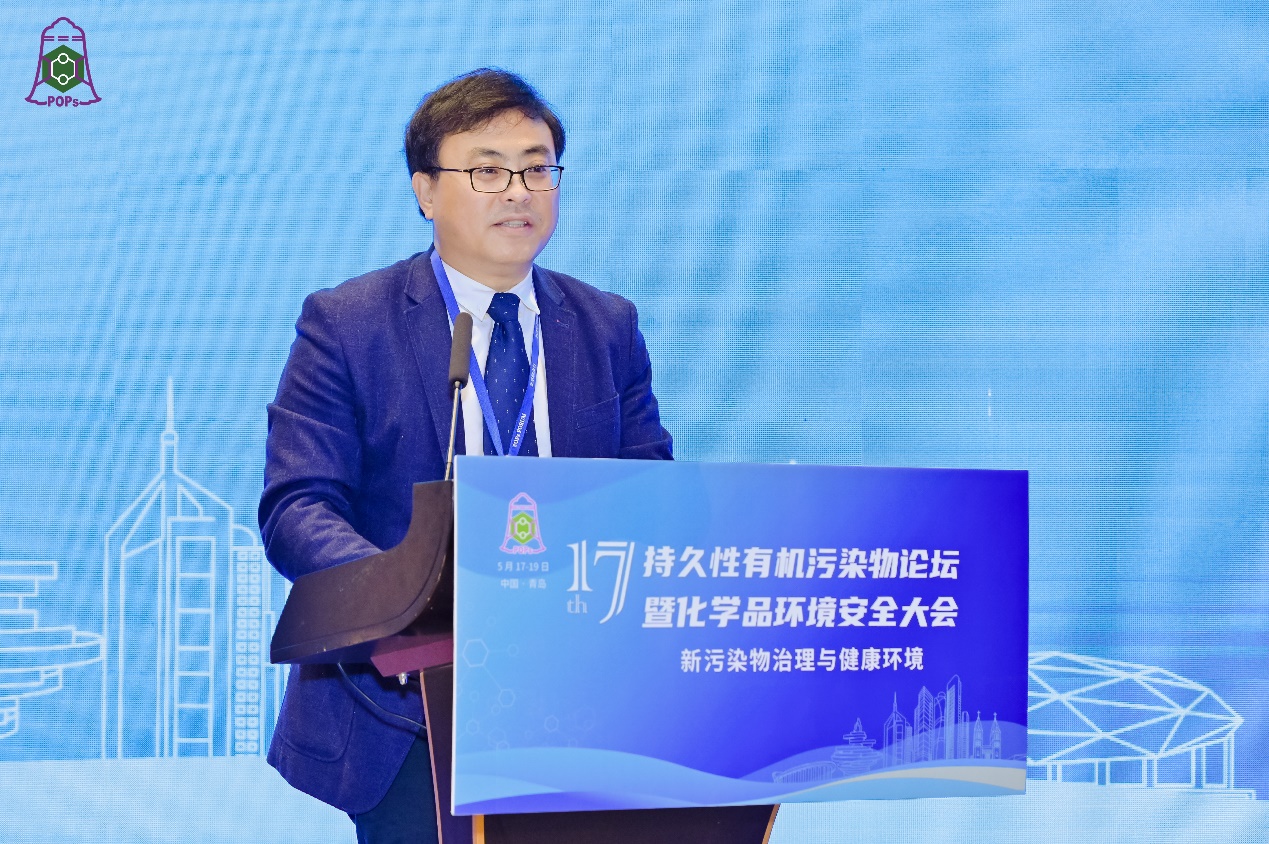
Speech by Zhang Jian
Zhang Kai highlighted that the forum served as a platform for profound exchanges and expressed his hope that the event would inspire fresh ideas and foster innovation during his speech.
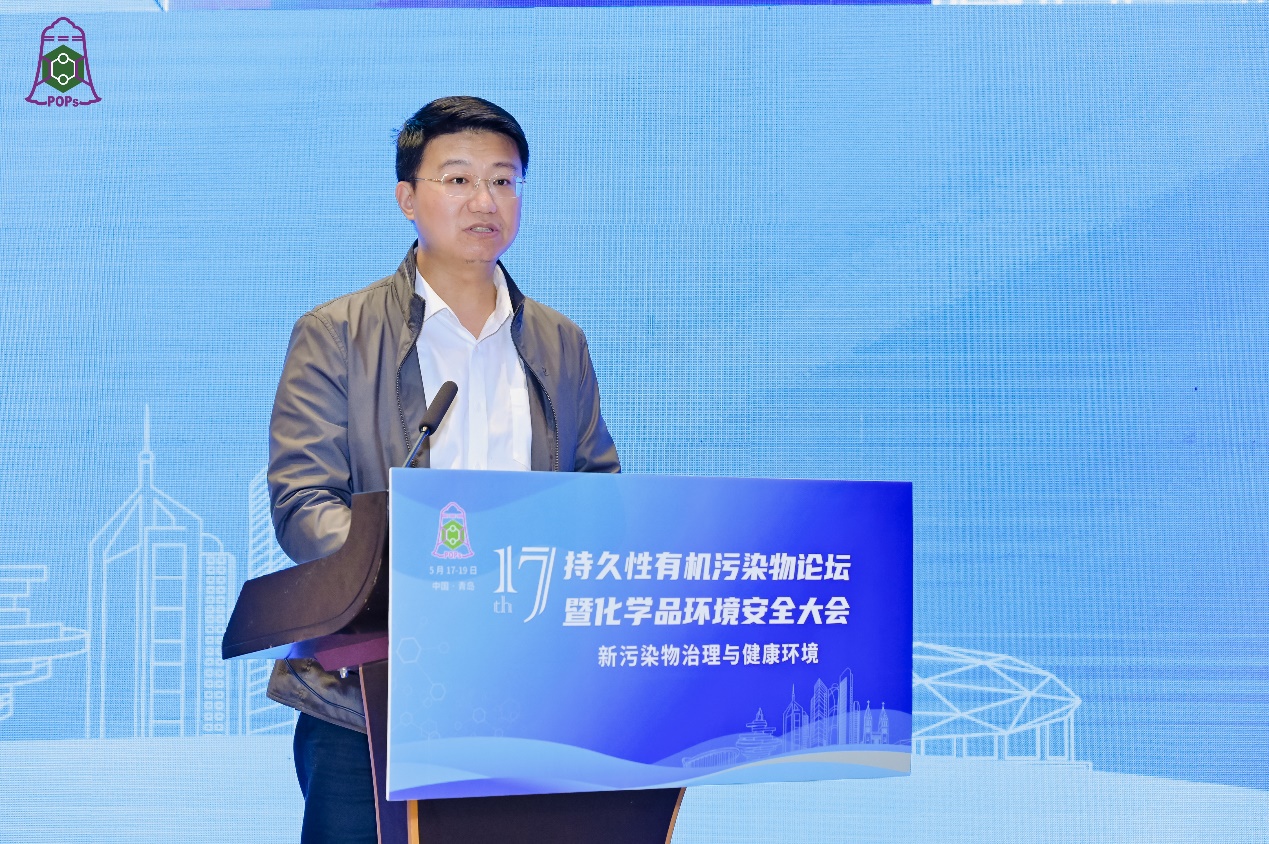
Speech by Zhang Kai
During the report session, Hu Jianxin, Deputy director of the POPs Specialized Committee and Professor at Peking University, delivered a presentation titled "Environmental Problems of Fluorinated Chemicals and the Need for Research ". Focusing on the dual goals of addressing global warming and creating a non-toxic environment, he discussed the environmental issues, management requirements, and research needs associated with fluorinated chemicals. Professor Hu highlighted the limited domestic research on the degradation transformation product trifluoroacetic acid and underscored the significance of controlling emissions of non-carbon dioxide fluorine-containing gases. He suggested adopting a dialectical perspective on the risks and benefits of fluorinated chemicals and advocated achieving an organic balance between the two through scientific research, innovation, and technological upgrades.
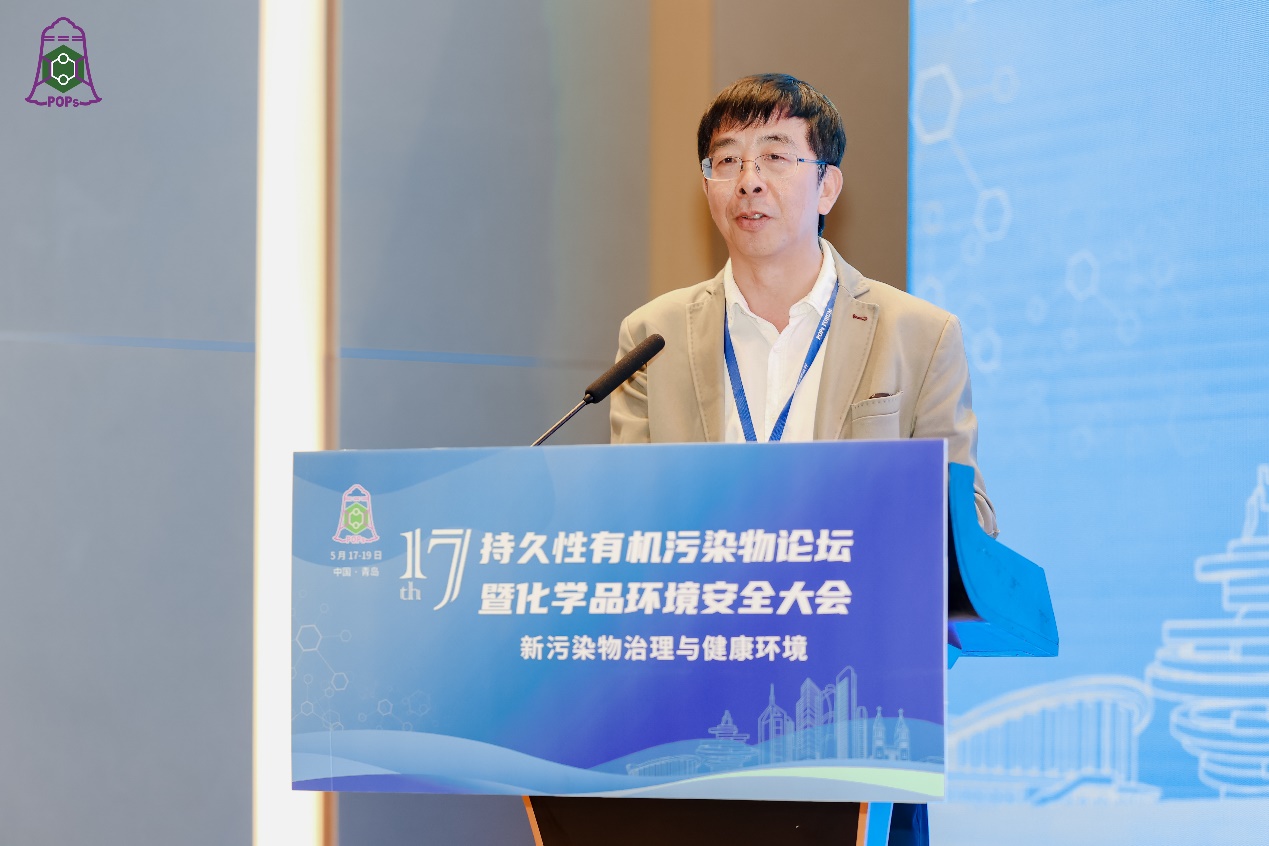
Report of the conference by Hu Jianxin
Peng Zheng, head of Convention Implementation Division III of the Foreign Environmental Cooperation Center, Ministry of Ecology and Environment, and a member of the POPs Specialized Committee, presented on "Progress in the Implementation of the Stockholm Convention in China and Future Prospects." He introduced the progress of the Convention, the review of the implementation pathway and the organization of work. He emphasized China's proactive involvement in the Convention since being among its early adopters. The release of the Action Program for the Control of Emerging Contaminants in 2022 marked a significant milestone. During the Implementation of the Stockholm Convention, valuable implementation experiences were sumed up, including enhancing national top-level design, strictly enforcing phase-out limits and control requirements, promoting scientific research across various fields, and intensifying multi-dimensional POPs awareness campaigns.
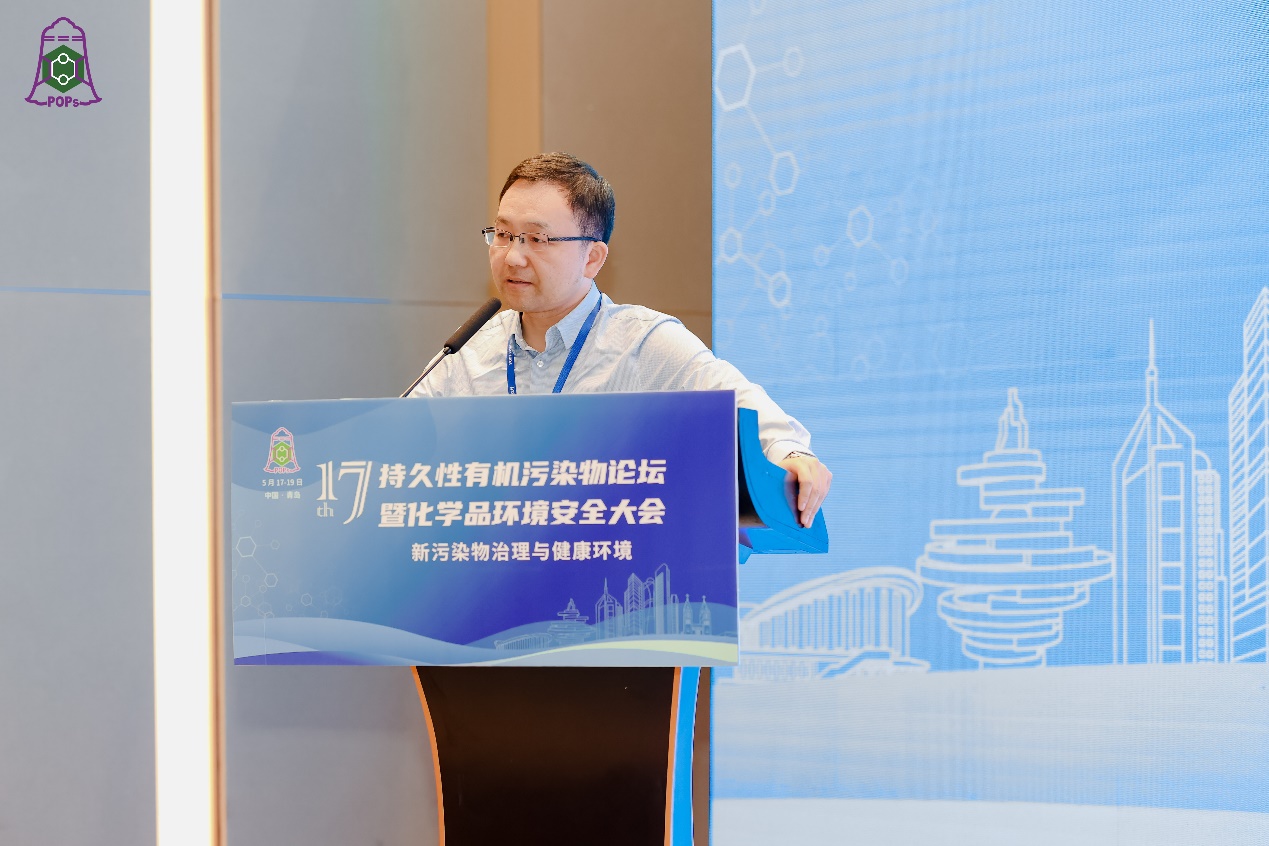
Report of the conference by Peng Zheng
The second phase of the conference report was led by Zheng Minghui, Deputy Director of the POPs Specialized Committee and Researcher at the Research Center for Eco Environmental Sciences, Chinese Academy of Sciences. Professor Chen Jingwen of Dalian University of Technology, a member of the POPs Specialized Committee, delivered an engaging presentation on modeling and predicting the environmental persistence of chemicals. He highlighted key issues in environmental persistence assessment and proposed achieving efficient, high-throughput, and low-cost predictions through environmental computational toxicology with emphasis on the two major pillars, mechanism guidance and data drive. Professor Zhu Yongfa from Tsinghua University reported the progress in the coordinated photocatalytic mineralization of emerging organic contaminants. Staring with the technological bottlenecks, the presentation covered the effectiveness and mechanisms of advanced photocatalytic technologies, emphasizing their ability for rapid and thorough mineralization of emerging contaminants in water bodies. Yu Gang provided a comprehensive report on the progress, future direction, and scientific and technological needs of the POPs Convention. Noting remarkable achievements in implementation, Yu Gang outlined the development stage characterized by international consensus, an increasing array of control targets, the initial success in controlling specific substances, and step-by-step actions for new substances. He predicted active future efforts in expanding the types of controlled substances, reinforcing synergistic implementation of the Convention, and pursuing non-toxic or low-risk environmental goals. Yu Gang also identified practical scientific and technological needs, offering guidance for future implementation work and research.
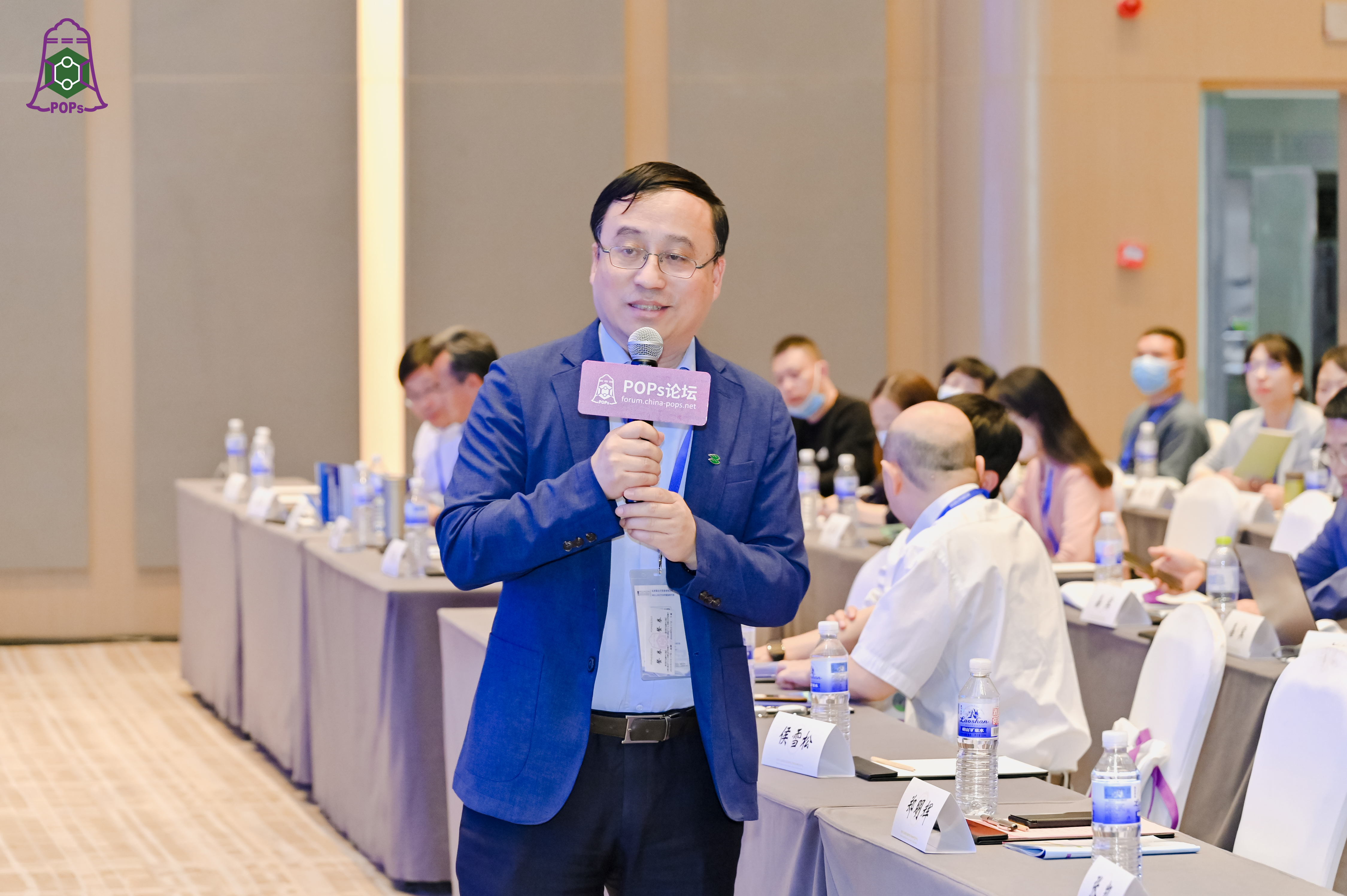
Zheng Minghui presided over the conference report.
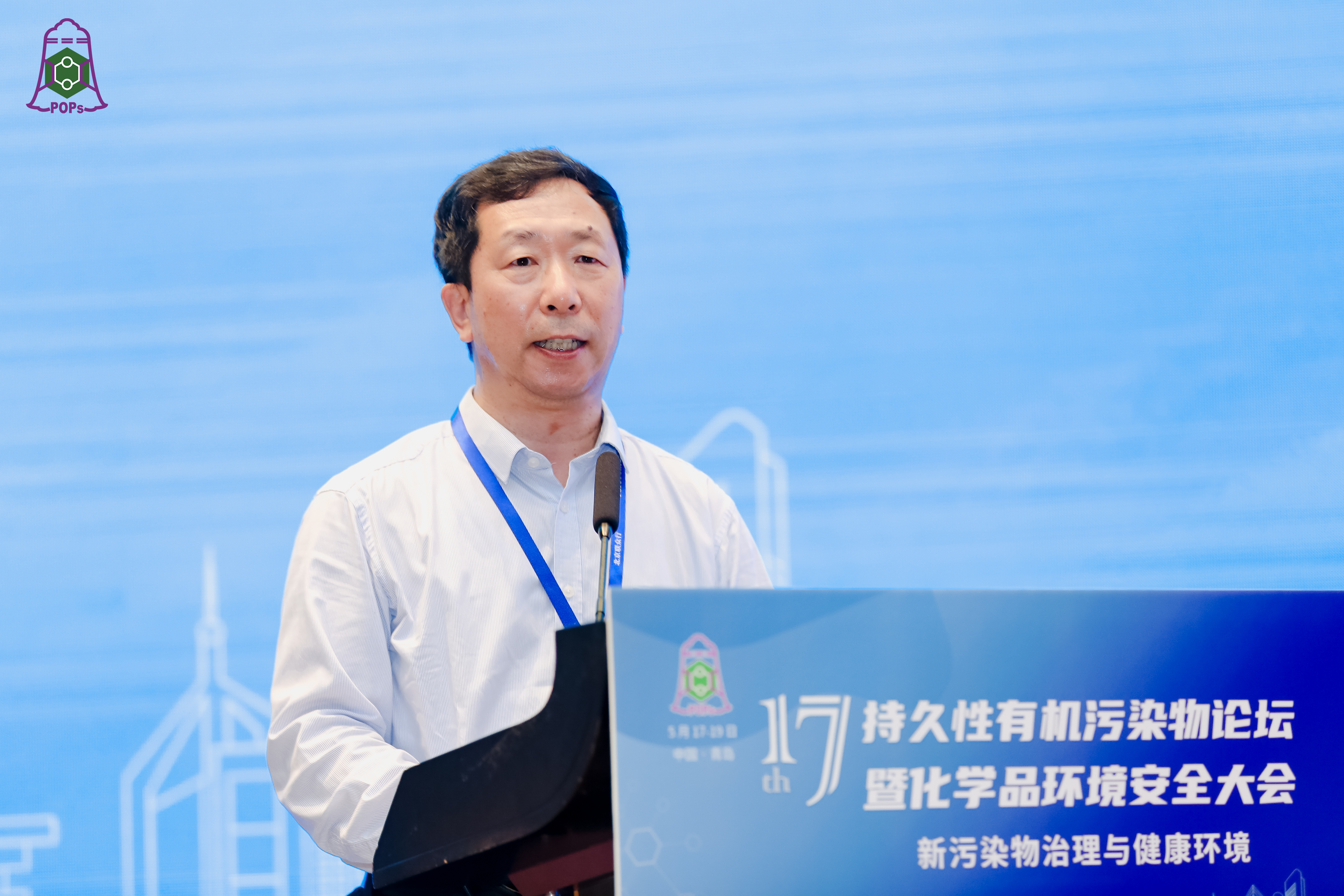
Report of the conference by Chen Jingwen
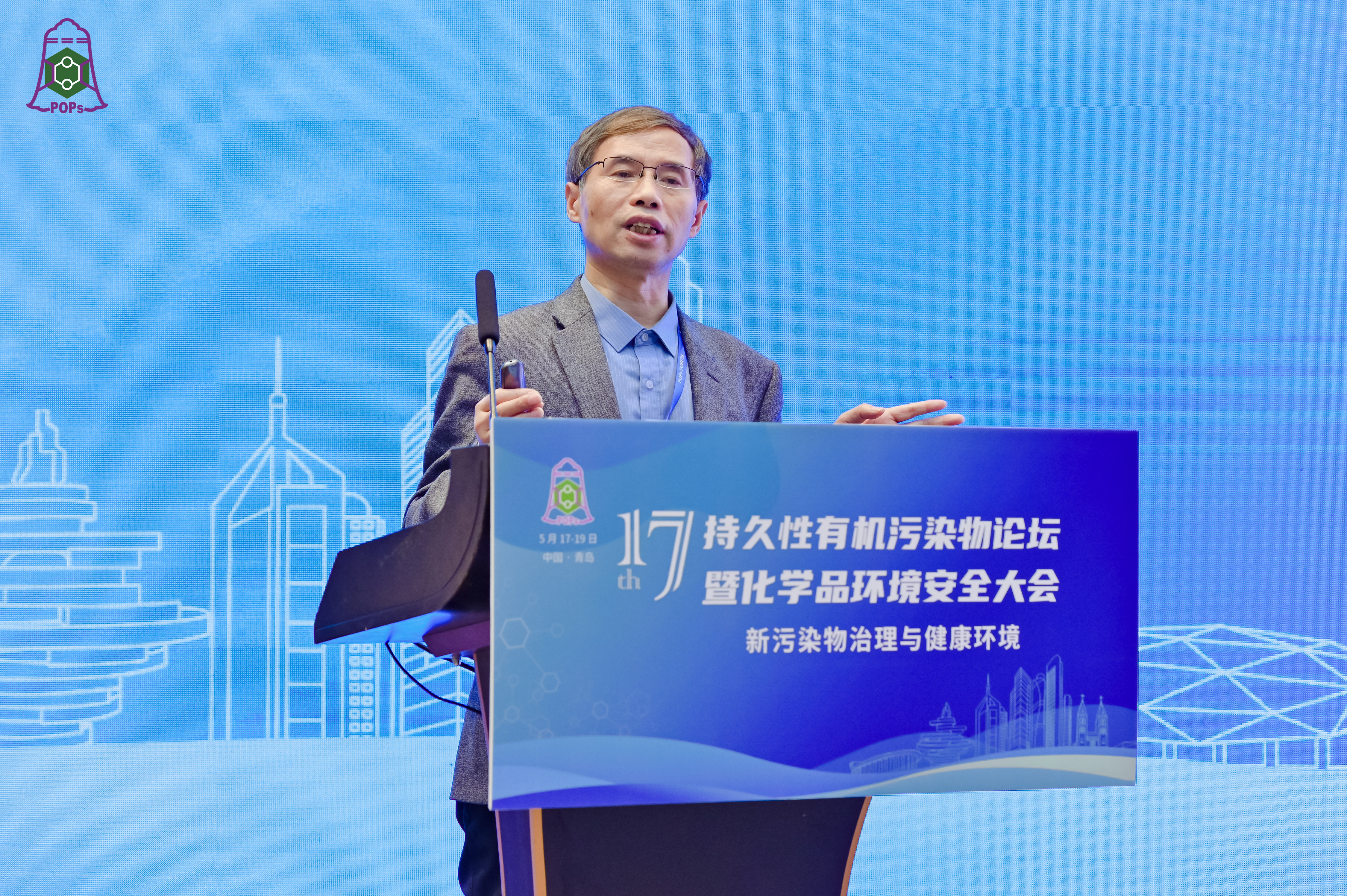
Report of the conference by Zhu Yongfa
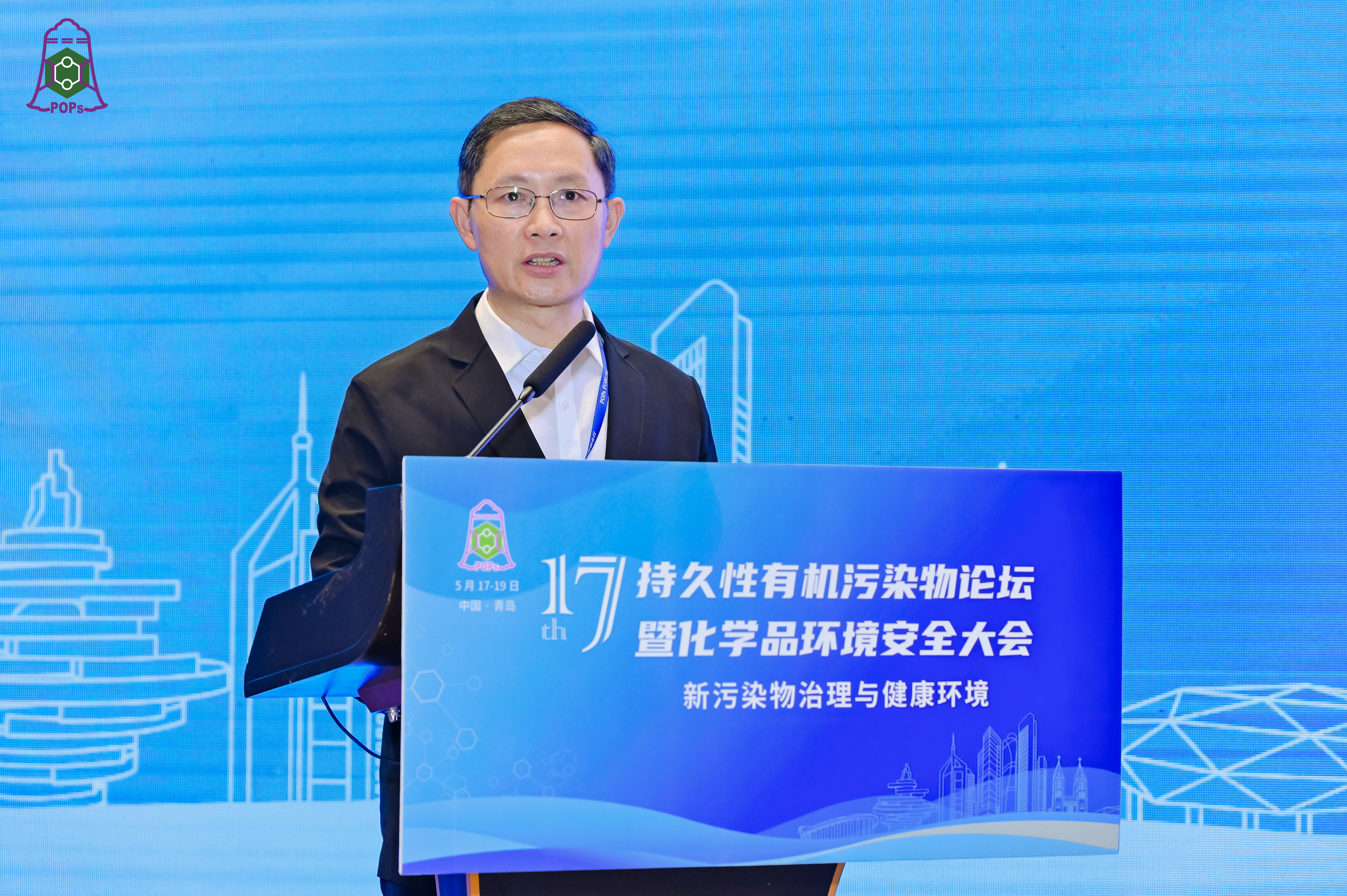
Report of the conference by Yu Gang
During the forum, participants focused on twelve key topics, including “Analysis of Environmental Organic Pollutants and Pollution Characteristics”, “Environmental Behavior and Migration of Organic Pollutants”, “Toxicological Effects of Organic Pollutants and Health and Ecological Risks”, “Alternative and control technologies for POPs.”, “Emission Reduction Technology and Practice for By-product POPs”,
“Toxic and Hazardous Chemical Waste Disposal and Remediation Technology”, “Environmental Risks and Control of Pharmaceuticals and Personal Care Products (PPCPs)”, “Per- and Polyfluoroalkyl Substances (PFAS) Contamination and Its Control”, “Implementation Strategies and Regulation of POPs”, “Environmental Behavior and Effects of Emerging contaminants in the Marine (Polar) Environment”, “Biotransformation and Remediation Applications of Halogenated Organic Substances”, and “Emerging contaminants Control”. The forum featured a total of 435 papers, consisting of 320 reports (including 9 conference reports and 311 session reports) and 76 wall poster presentations.
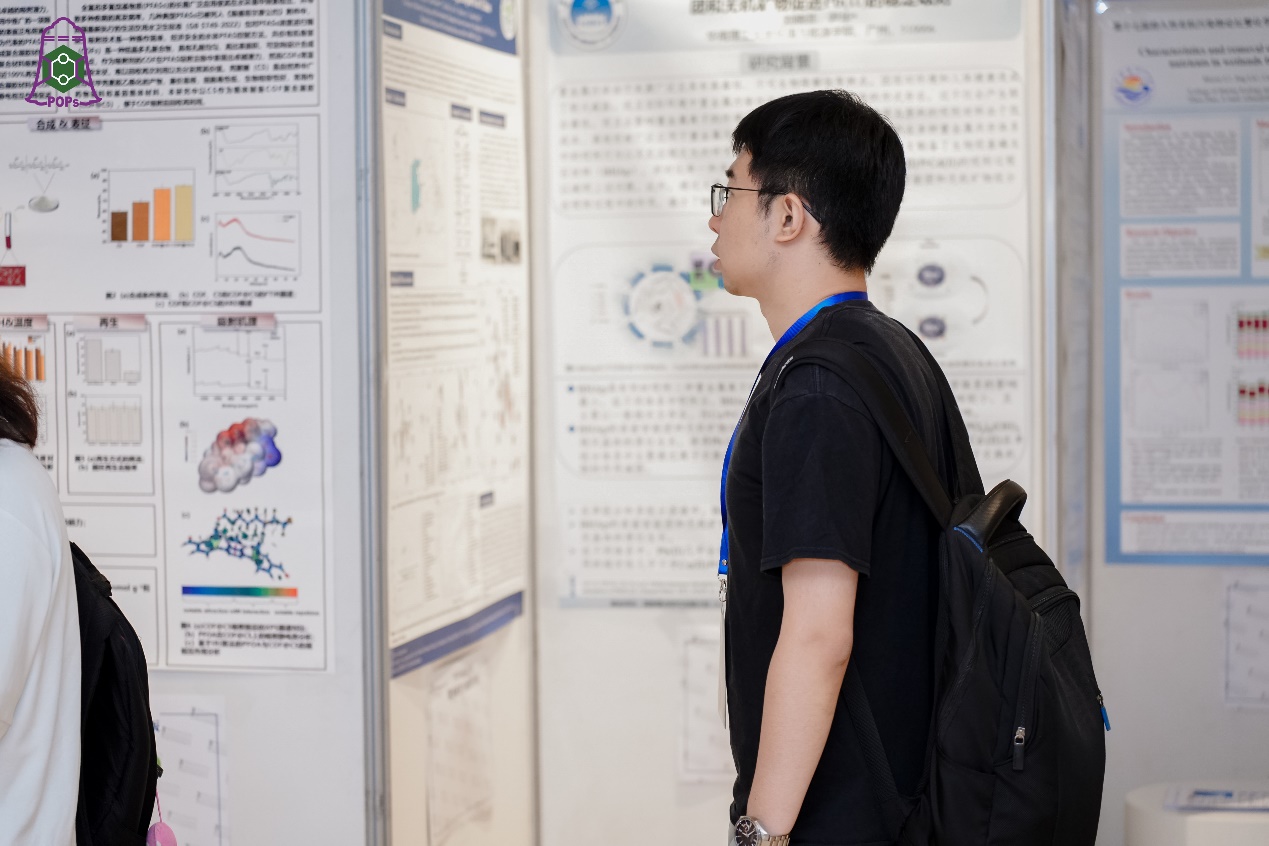
Wall poster exhibition area
The forum was co-organized by Shimadzu (China) Co., Ltd, Wellington-China, Waters (Shanghai) Co. Ltd, Agilent Technologies (China) Co. Ltd., Thermo Fisher Scientific (China) Co. Ltd., CSD IDEA (Beijing) Environmental Test & Analysis Co., Ltd., Bruker (Beijing) Scientific Technology Co. Ltd., Shenzhen Institute of Environmental Science - National Environmental Protection Technology Key Laboratory of Drinking Water Source Management, and Guangzhou Hosin Instrument Co. The event featured a corporate exhibition hall and communication venue where enterprises could present their latest technical reports and product demonstrations. This allowed for the introduction and promotion of cutting-edge equipment, products, and technology, fostering comprehensive communication with delegates to address their needs and inquiries.
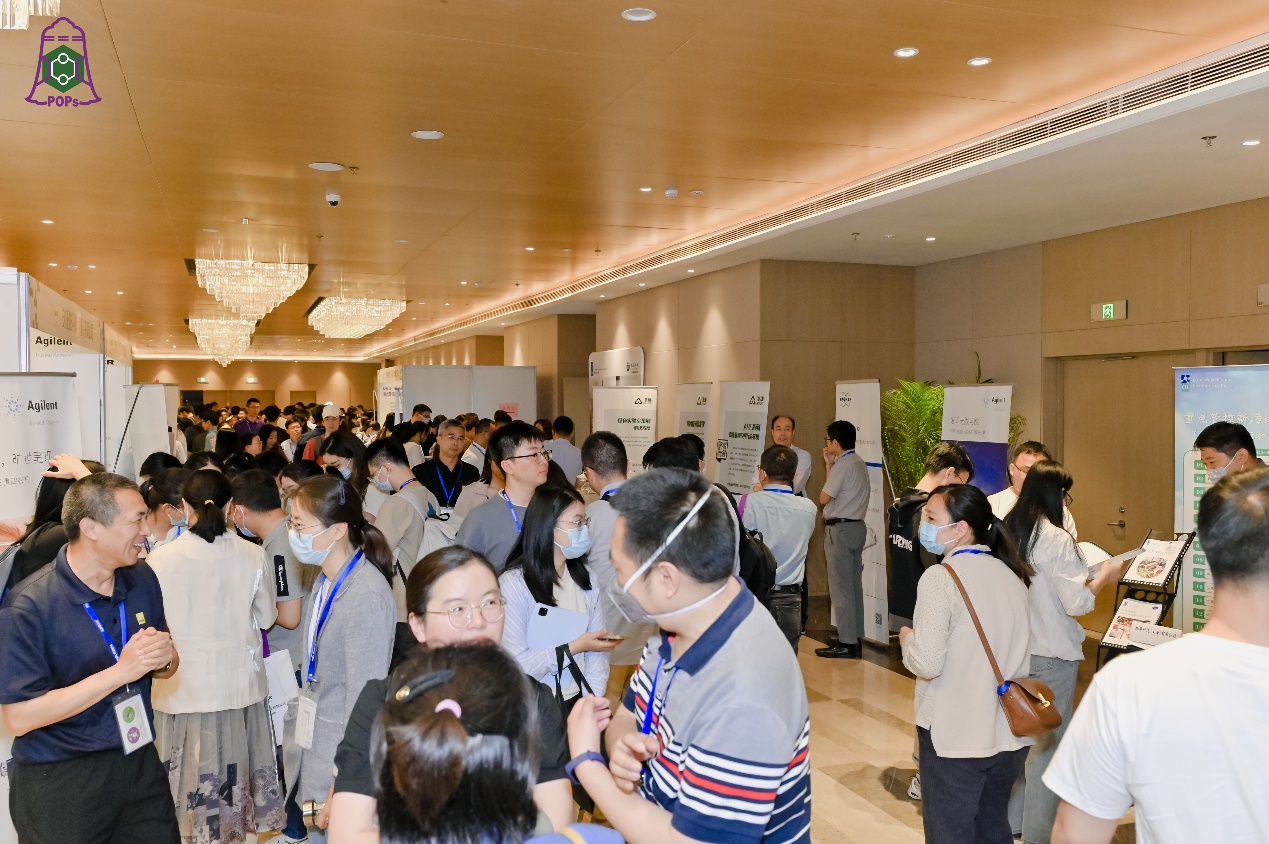
Corporate exhibition hall and communication venue
Aligned with national directives to enhance the control of Emerging contaminants, stakeholders across various sectors are placing unprecedented emphasis on this issue. The forumtailored to meet key national prioritiesclosely aligns with the forefront of POPs research, with a specific focusing on " Emerging Contaminants Control & Environmental Health " The event witnessed a record-breaking number of participants, with representatives actively engaging in extensive exchanges and collaborative discussions. This forum serves as a vital opportunity to further enhance China's high-level and comprehensive communication platform in the field of POPs, facilitating dialogue among government, industry, academia, and research communities.



